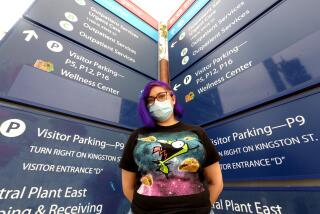If Your Child Needs Help : Guiding Parents Through the Psychotherapy Maze
- Share via
PARENTS WHO FEAR THAT THEIR children have emotional problems can turn to a wide variety of resources for help. Most therapists are found through referral, often through the family pediatrician. Friends, clergy, or school counselors may also be able to suggest where to find help, and county departments of mental health and the local chapters of the Mental Health Assn. also provide referrals.
There are essentially three kinds of therapists, and the distinctions among them can be confusing. Therapists may be psychiatrists, psychologists or psychiatric social workers. They may also be psychoanalysts--therapists trained in specific techniques developed by Sigmund Freud and others, usually in addition to their training in psychology and psychiatry. The simplest distinction among these professions is that psychiatrists are medical doctors; they can prescribe medication and hospitalize patients who require it. Psychologists, psychiatric social workers and psychiatrists all have similar therapeutic training, and they may work at clinics, in private practice or as part of a hospital program.
The first step in getting treatment is an evaluation. The therapist will meet with the child and parents, gather background information, perhaps test the child, and formulate a treatment plan. These interviews provide an opportunity for parents and child to evaluate the therapist as well, to learn about his or her approach and to decide if the services offered are what they want.
The three major institutions mentioned in the accompanying article offer the following services:
The Early Childhood Center at Cedars-Sinai Medical Center maintains a telephone Warm Line at (213) 855-3500 to give free advice about non-medical problems to parents of children under age 6. Typical Warm Line questions concern crying, sleep habits, eating, toilet habits, intelligence, obedience, nervousness, anger and temper tantrums. Warm Line counselors assess the problem and, if necessary, refer the caller to other services at the center, such as mother-infant or mother-toddler education and guidance; a “high-risk” group for toddlers and mothers having a difficult time bonding, and the Cheerful Helpers therapeutic nursery school. 8730 Alden Drive, Los Angeles. (213) 855-3500 .
The Neuropsychiatric Hospital and Institute at UCLA offers outpatient and inpatient psychiatric services for children ages 3 to 18. There are two units each for children and adolescents. Evaluation includes psychological, educational and neurological testing when necessary. Kathy Demming, who is in charge of clinical intake for children, answers questions from concerned parents and directs them to the appropriate place, within and outside the institute, depending on the problem. 405 Hilgard Ave., Westwood. (213) 825-0301.
The Child Study Center of St. John’s Hospital provides individual, family and group therapy and parent education classes for parents of infants through teen-agers. 1339 20th St., Santa Monica. (213) 829-8921.
Private mental-health care can be very expensive, and medical insurance typically covers only a small portion of the cost. At Cedars-Sinai and St. John’s Hospital, the clinics do not turn away anyone because of inability to pay.


